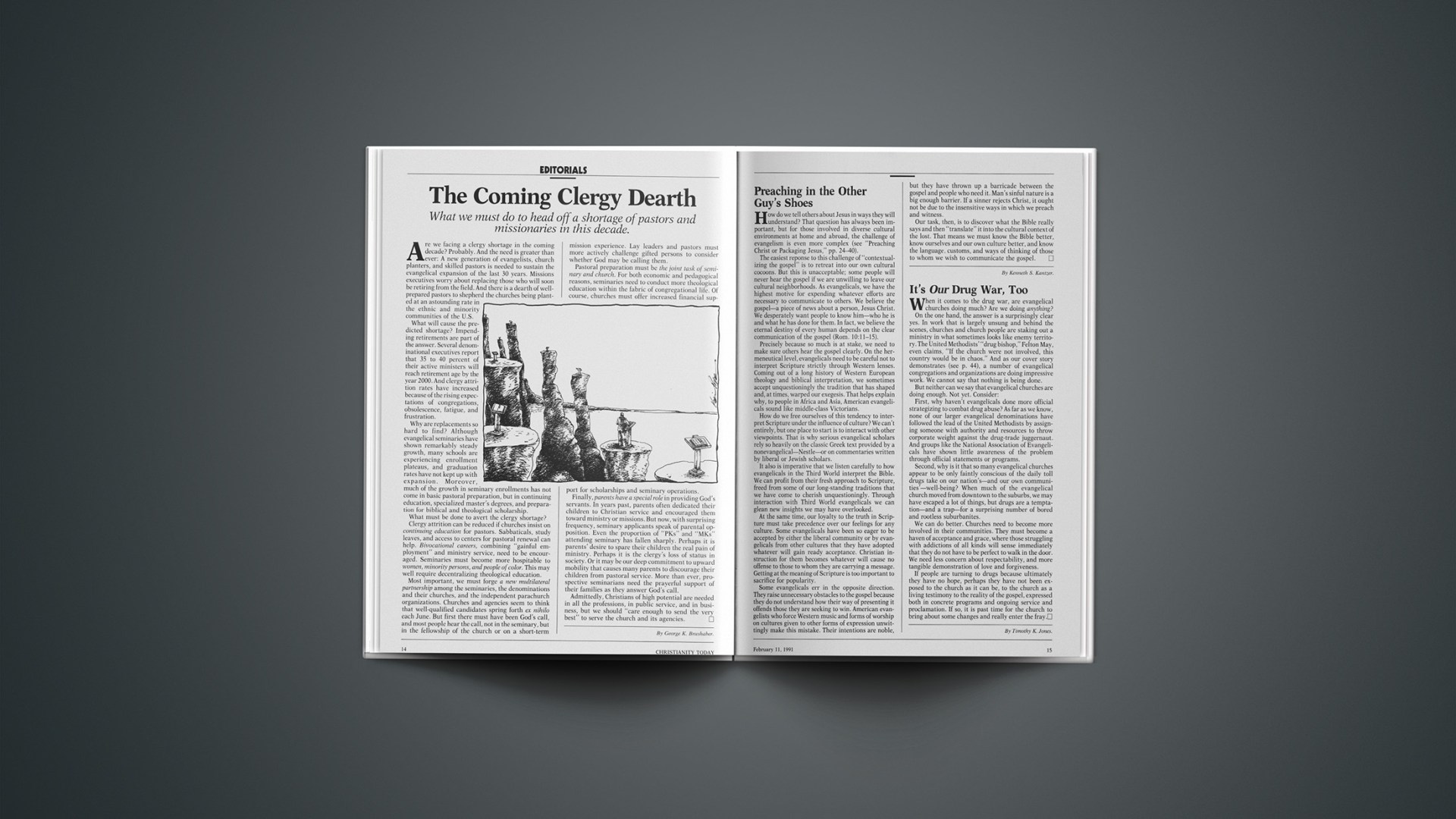When it comes to the drug war, are evangelical churches doing much? Are we doing anything?
On the one hand, the answer is a surprisingly clear yes. In work that is largely unsung and behind the scenes, churches and church people are staking out a ministry in what sometimes looks like enemy territory. The United Methodists’ “drug bishop,” Felton May, even claims, “If the church were not involved, this country would be in chaos.” And as our cover story demonstrates (see p. 44), a number of evangelical congregations and organizations are doing impressive work. We cannot say that nothing is being done.
But neither can we say that evangelical churches are doing enough. Not yet. Consider:
First, why haven’t evangelicals done more official strategizing to combat drug abuse? As far as we know, none of our larger evangelical denominations have followed the lead of the United Methodists by assigning someone with authority and resources to throw corporate weight against the drug-trade juggernaut. And groups like the National Association of Evangelicals have shown little awareness of the problem through official statements or programs.
Second, why is it that so many evangelical churches appear to be only faintly conscious of the daily toll drugs take on our nation’s—and our own communities’—well-being? When much of the evangelical church moved from downtown to the suburbs, we may have escaped a lot of things, but drugs are a temptation—and a trap—for a surprising number of bored and rootless suburbanites.
We can do better. Churches need to become more involved in their communities. They must become a haven of acceptance and grace, where those struggling with addictions of all kinds will sense immediately that they do not have to be perfect to walk in the door. We need less concern about respectability, and more tangible demonstration of love and forgiveness.
If people are turning to drugs because ultimately they have no hope, perhaps they have not been exposed to the church as it can be, to the church as a living testimony to the reality of the gospel, expressed both in concrete programs and ongoing service and proclamation. If so, it is past time for the church to bring about some changes and really enter the fray.










